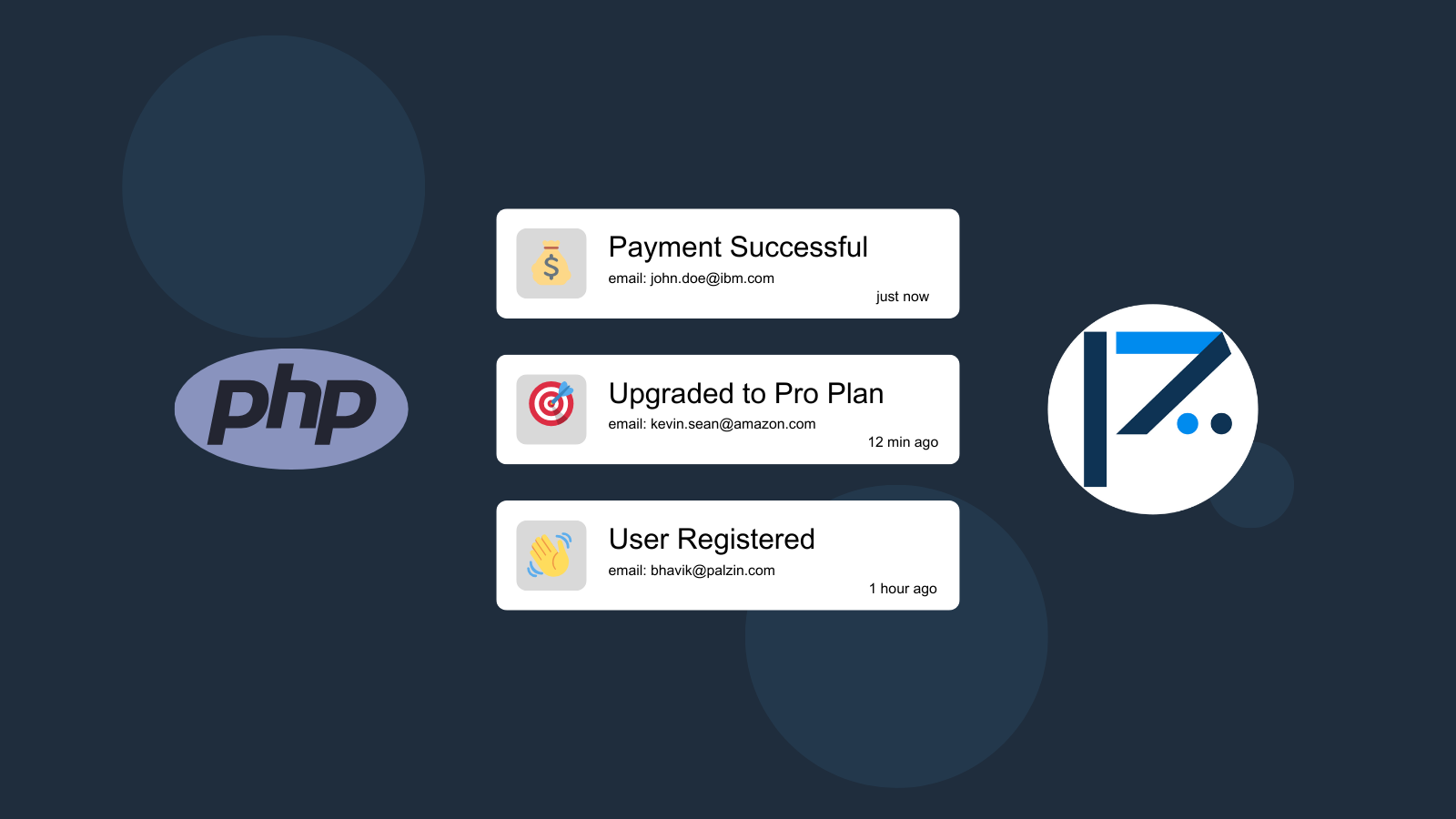
When it comes to Php development, MySQL often plays a central role due to its reliability as a relational database. It facilitates a seamless transition from development to production, making it a favored choice for both small and large applications.
However, like any software or database, MySQL can encounter issues and downtime caused by various factors, both internal and external. These factors may include connectivity problems, hardware failures, misconfigurations, resource constraints, and more, leading to unexpected disruptions in MySQL's operation. Thankfully, modern services are available to handle the hosting and management of MySQL instances, allowing developers to concentrate on application development. Nonetheless, it remains essential to continuously monitor the database's status and respond promptly to any anomalies.
At Palzin Track, we've developed a solution to simplify the process of monitoring and taking action when things don't go as planned. Palzin Track is a straightforward yet potent event-tracking tool that enables developers to log and track all activities within their applications, whether it's user interactions or the status and downtime of the database. It serves as a unified repository of truth for all events within a product and offers an array of features to streamline event management and monitoring.
For instance, in the context of using MySQL with Php, it's common practice to establish regular checks to verify the database's operational status and to monitor its performance, disk usage, and memory consumption. When issues such as increased disk usage, sluggish performance, or downtime are detected, these events are logged through Palzin Track, which promptly alerts the development team and facilitates swift remedial action.
Furthermore, Palzin Track includes a robust insights dashboard that provides a comprehensive overview of the database's health. This dashboard allows monitoring of various metrics such as performance, uptime, memory utilization, and more, ensuring easy and effective oversight of the database's well-being.
To track your MySQL downtime, you can use the following code snippet Please don't forget to replace the YOUR_API_TOKEN with your API token and update the project and channel names.
Using PHP with cURL
<?php
$curl = curl_init();
curl_setopt_array($curl, array(
CURLOPT_URL => 'https://api.palzin.live/v1/log',
CURLOPT_RETURNTRANSFER => true,
CURLOPT_ENCODING => '',
CURLOPT_MAXREDIRS => 10,
CURLOPT_TIMEOUT => 0,
CURLOPT_FOLLOWLOCATION => true,
CURLOPT_HTTP_VERSION => CURL_HTTP_VERSION_1_1,
CURLOPT_CUSTOMREQUEST => 'POST',
CURLOPT_POSTFIELDS =>'{"project":"my-project","channel":"status","event":"MySQL is down","description":"MySQL has been down for the last 5 minutes","icon":"🚨","notify":true}',
CURLOPT_HTTPHEADER => array(
'Content-Type: application/json',
'Authorization: Bearer YOUR_API_TOKEN'
),
));
$response = curl_exec($curl);
curl_close($curl);
echo $response;
Using PHP with Guzzle
<?php
$client = new Client();
$headers = \[
'Content-Type' => 'application/json',
'Authorization' => 'Bearer YOUR_API_TOKEN'
\];
$body = '{
"project": "my-project",
"channel": "status",
"event": "MySQL is down",
"description": "MySQL has been down for the last 5 minutes",
"icon": "🚨",
"notify": true
}';
$request = new Request('POST', 'https://api.palzin.live/v1/log', $headers, $body);
$res = $client->sendAsync($request)->wait();
echo $res->getBody();
Using PHP with HTTP_Request2
<?php
require_once 'HTTP/Request2.php';
$request = new HTTP_Request2();
$request->setUrl('https://api.palzin.live/v1/log');
$request->setMethod(HTTP_Request2::METHOD_POST);
$request->setConfig(array(
'follow_redirects' => TRUE
));
$request->setHeader(array(
'Content-Type' => 'application/json',
'Authorization' => 'Bearer YOUR_API_TOKEN'
));
$request->setBody('{"project":"my-project","channel":"status","event":"MySQL is down","description":"MySQL has been down for the last 5 minutes","icon":"🚨","notify":true}');
try {
$response = $request->send();
if ($response->getStatus() == 200) {
echo $response->getBody();
}
else {
echo 'Unexpected HTTP status: ' . $response->getStatus() . ' ' .
$response->getReasonPhrase();
}
}
catch(HTTP_Request2_Exception $e) {
echo 'Error: ' . $e->getMessage();
}
Using PHP with pecl_http
<?php
$client = new http\Client;
$request = new http\Client\Request;
$request->setRequestUrl('https://api.palzin.live/v1/log');
$request->setRequestMethod('POST');
$body = new http\Message\Body;
$body->append('{"project":"my-project","channel":"status","event":"MySQL is down","description":"MySQL has been down for the last 5 minutes","icon":"🚨","notify":true}');
$request->setBody($body);
$request->setOptions(array());
$request->setHeaders(array(
'Content-Type' => 'application/json',
'Authorization' => 'Bearer YOUR_API_TOKEN'
));
$client->enqueue($request)->send();
$response = $client->getResponse();
echo $response->getBody();
Palzin Track provides several powerful features, such as real-time event tracking, push notifications, charts, funnels, and user journey tracking. Furthermore, it works seamlessly with PHP and is an excellent addition to your toolset.
We would love to hear about how you use Palzin Track in your product, so please give it a try and let us know what you think!
Palzin Track reveals the human stories behind your data. Make user-centric decisions that drive growth.